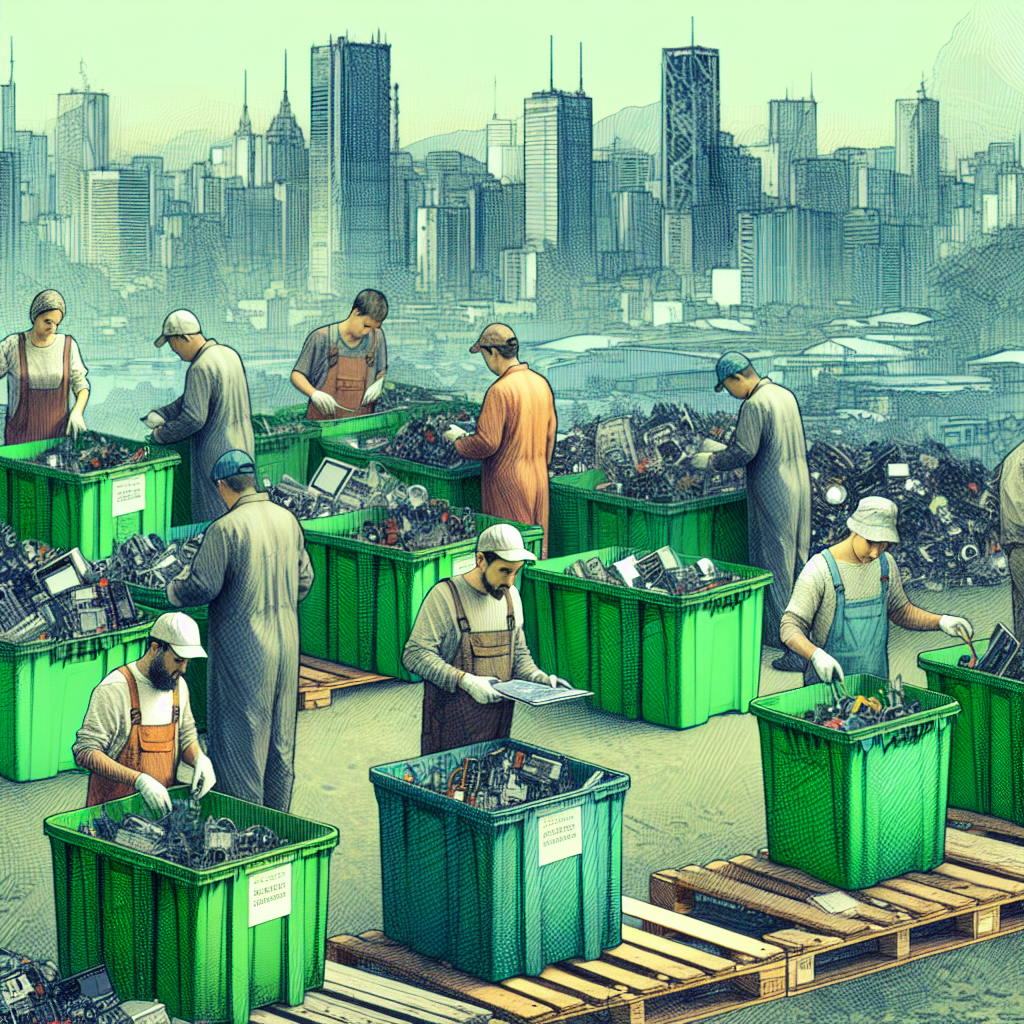Blog Ecobraz Eigre

Partnership in electronic recycling in São Paulo
Importance of Partnership in Electronic Waste Recycling in São Paulo
The partnership in electronic waste recycling in São Paulo is essential to ensure responsible environmental management of electronic waste (WEEE), as established by the National Solid Waste Policy (Law No. 12,305/2010). Cooperation between public and private organizations enables the implementation of efficient systems for selective collection, transportation, processing, and proper disposal of these wastes, minimizing environmental impacts and public health risks.
Applicable Regulations and Legal Obligations
According to Law No. 12,305/2010, electronic waste must undergo processes of reuse, recycling, and recovery as priorities, promoting the return of valuable materials to the production cycle and reducing the volume sent to sanitary landfills. The National Information System on Solid Waste Management (SINIR - sinir.gov.br) guides the recommended practices for the integrated management of these materials.
Reverse Logistics and Electronic Waste Collection
The success of recycling depends on efficient reverse logistics that facilitate the collection of discarded electronics from users and businesses. Scheduling for electronic waste collection can be done through the service available on the portal ecobraz.org, which offers transportation and disposal solutions according to current environmental regulations. This initiative reduces improper disposal, prevents contamination, and reinforces shared responsibility.
Procedures for Safe Disposal of Hard Drives and Media
For sensitive data stored on hard drives or other media, sanitization is essential to prevent leaks and ensure information confidentiality. The destruction and safe disposal procedure must be carried out in compliance with specialized technical protocols. Scheduling for this service can be accessed via ecobraz.org. This practice is aligned with the recommendations of the Brazilian Association of Technical Standards and other pertinent regulations.
Environmental and Economic Benefits of Cooperation
Integration and cooperation among different sectors provide significant benefits, such as reducing the amount of waste sent to landfills, recovering critical recyclable materials, and minimizing harmful environmental impacts, especially by containing the release of heavy metals and toxic substances. Additionally, it promotes formal job creation and fosters sustainable production chains in the metropolitan region of São Paulo.
Monitoring and Technical Compliance
The monitoring of recycling processes must observe strict technical criteria, based on state environmental regulations, as established by CETESB, the agency responsible for oversight in São Paulo. Continuous monitoring ensures that practices comply with federal and state standards, reducing legal risks and aiding process transparency.

Deixe um comentário
O seu endereço de e-mail não será publicado. Campos obrigatórios são marcados com *